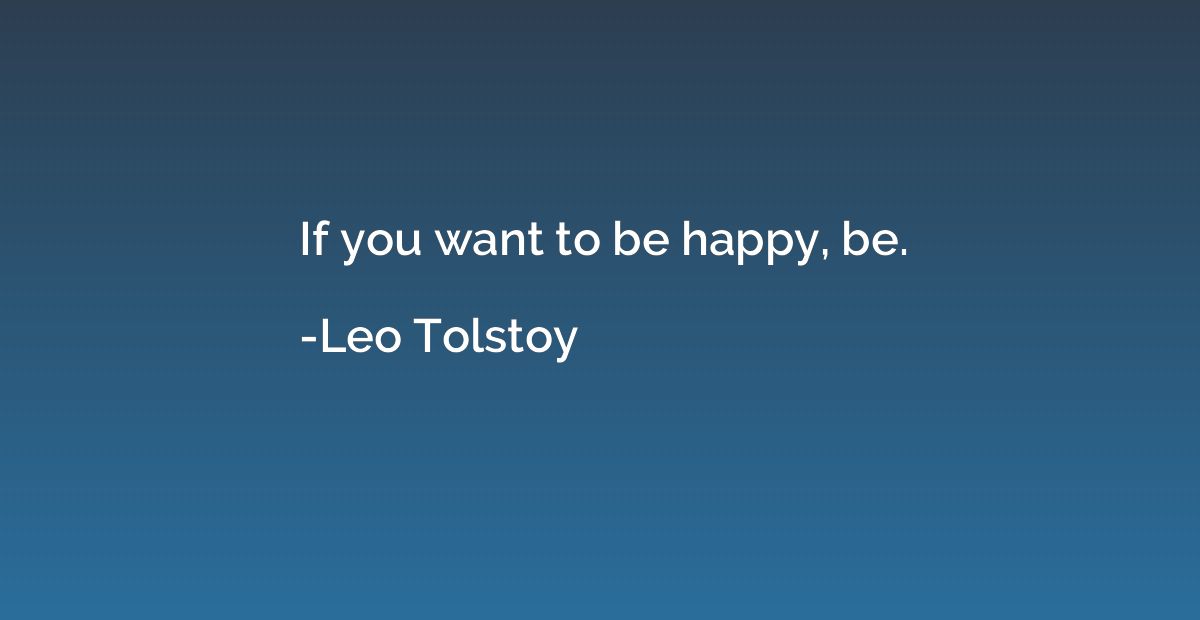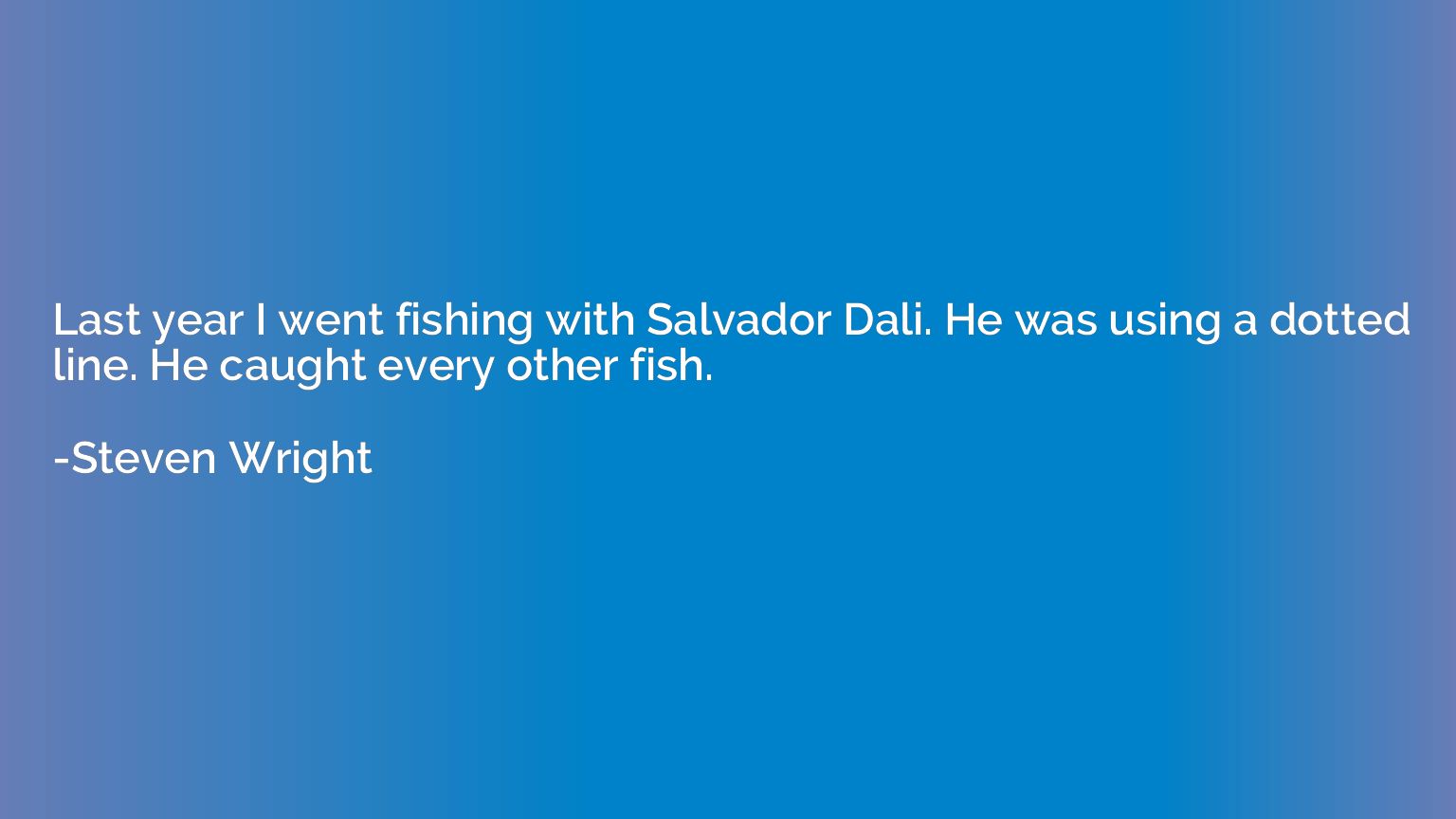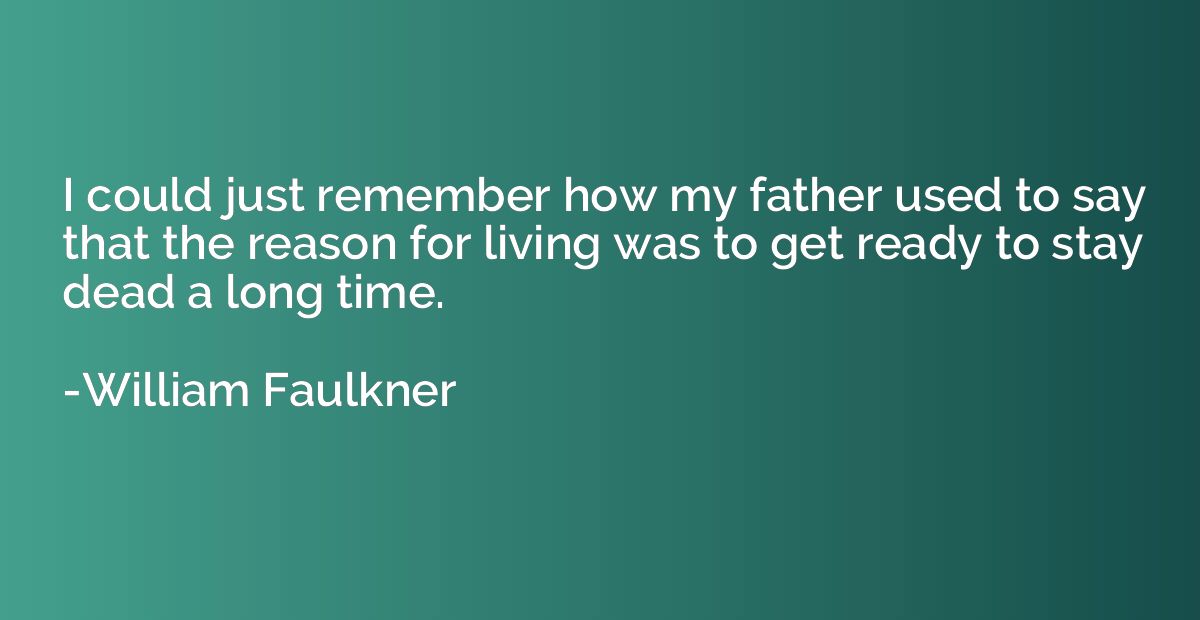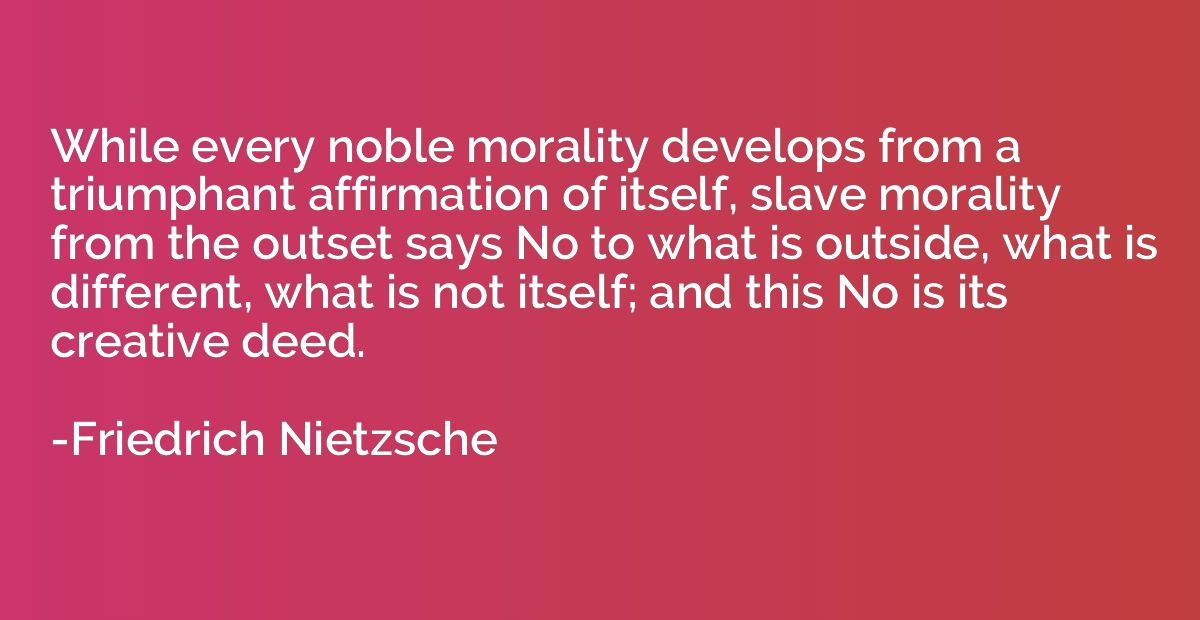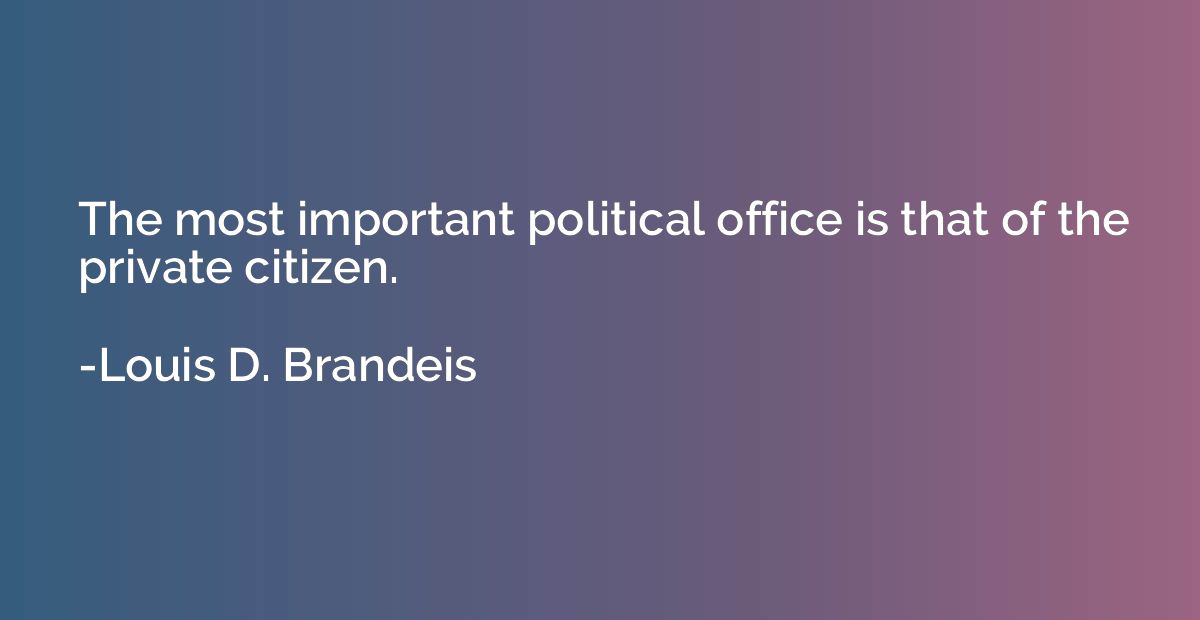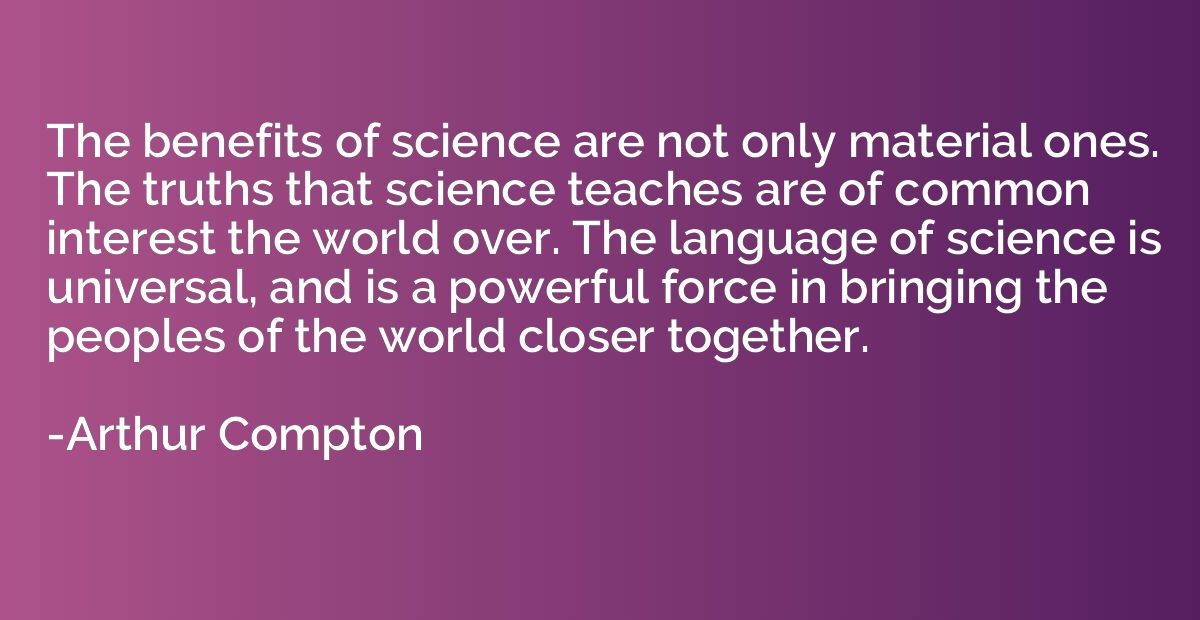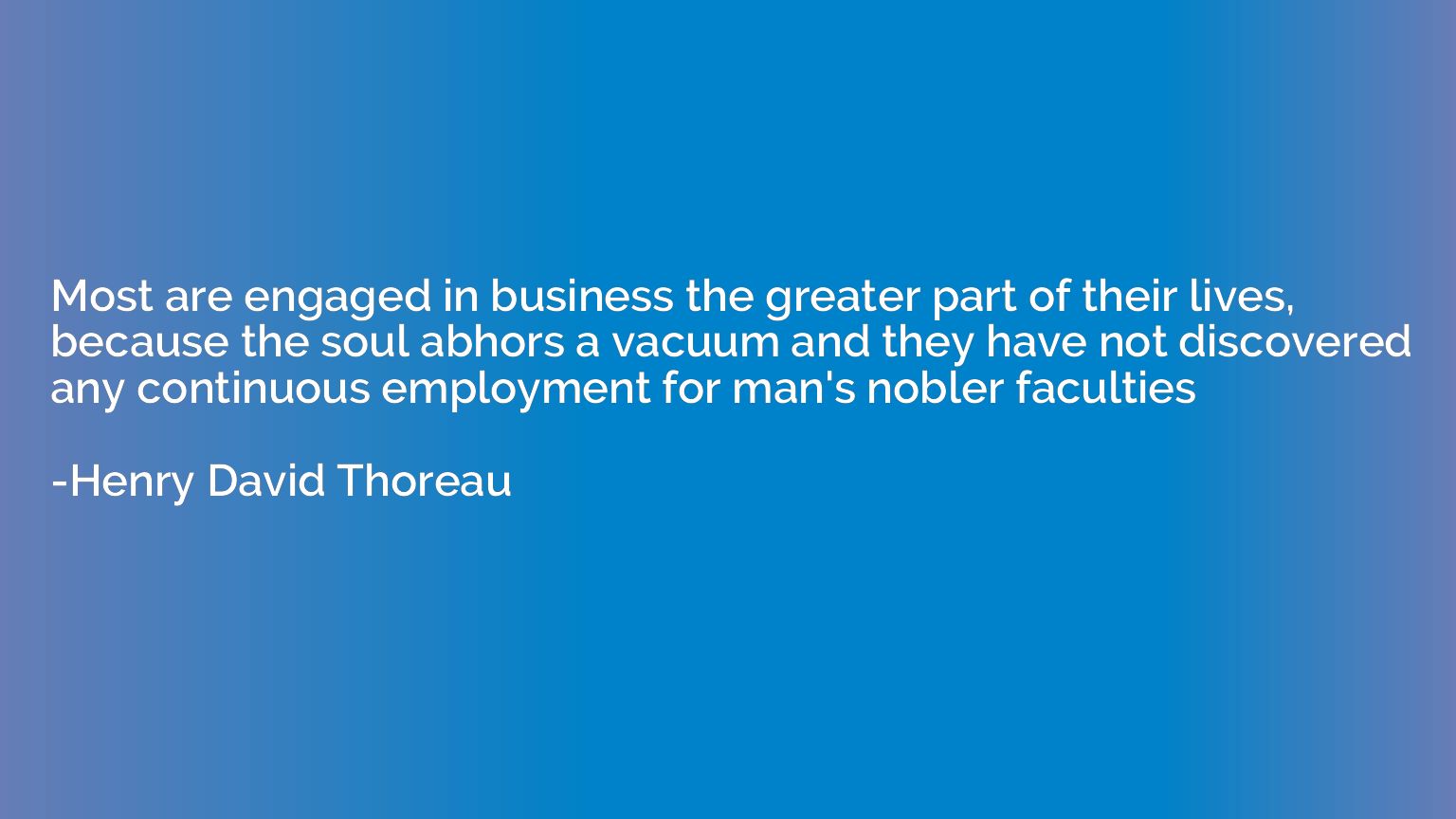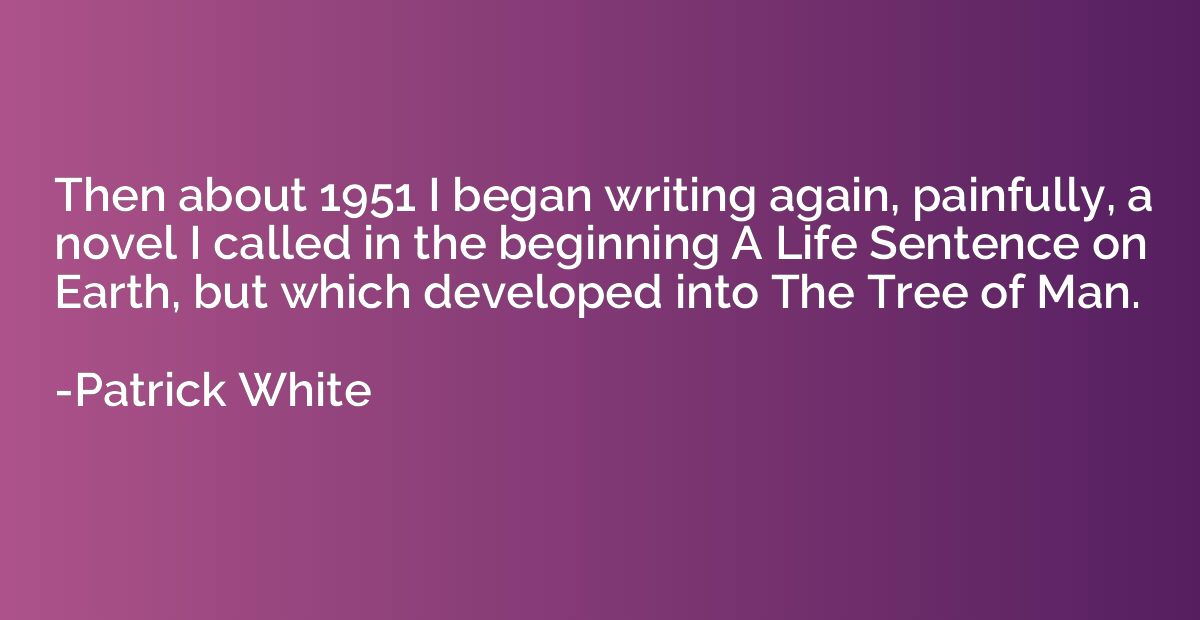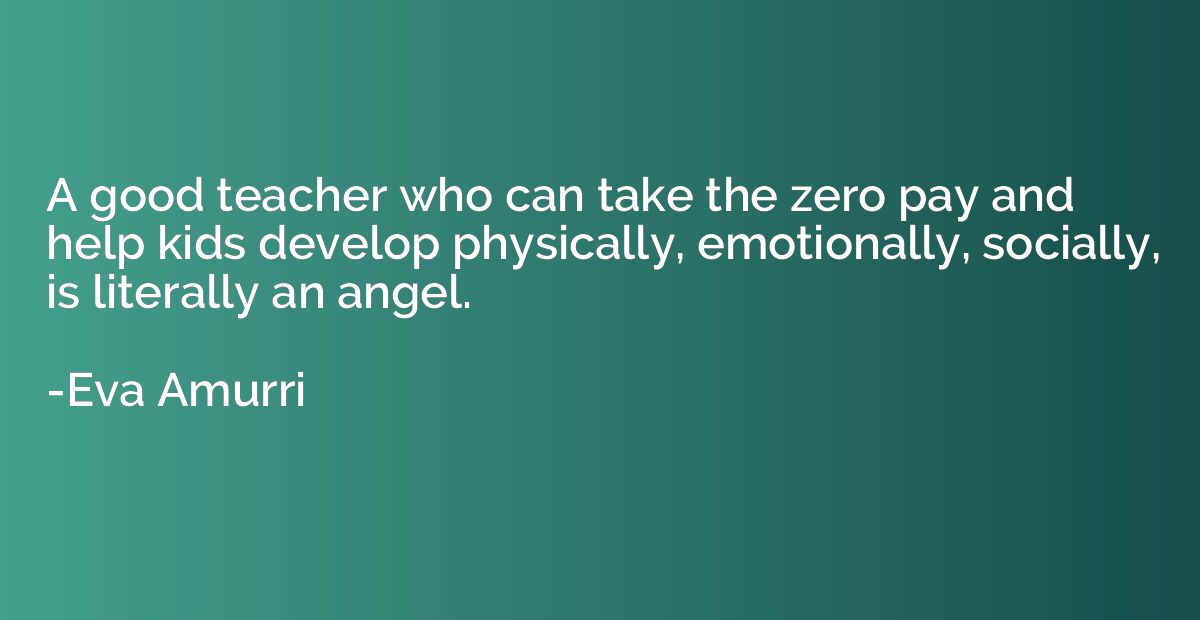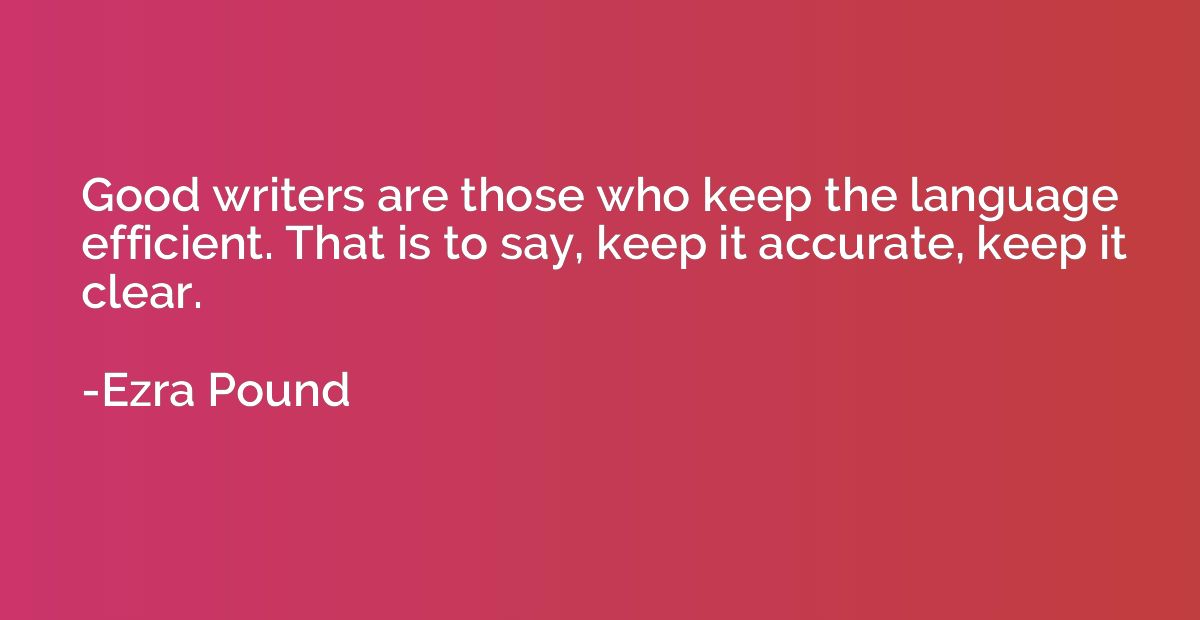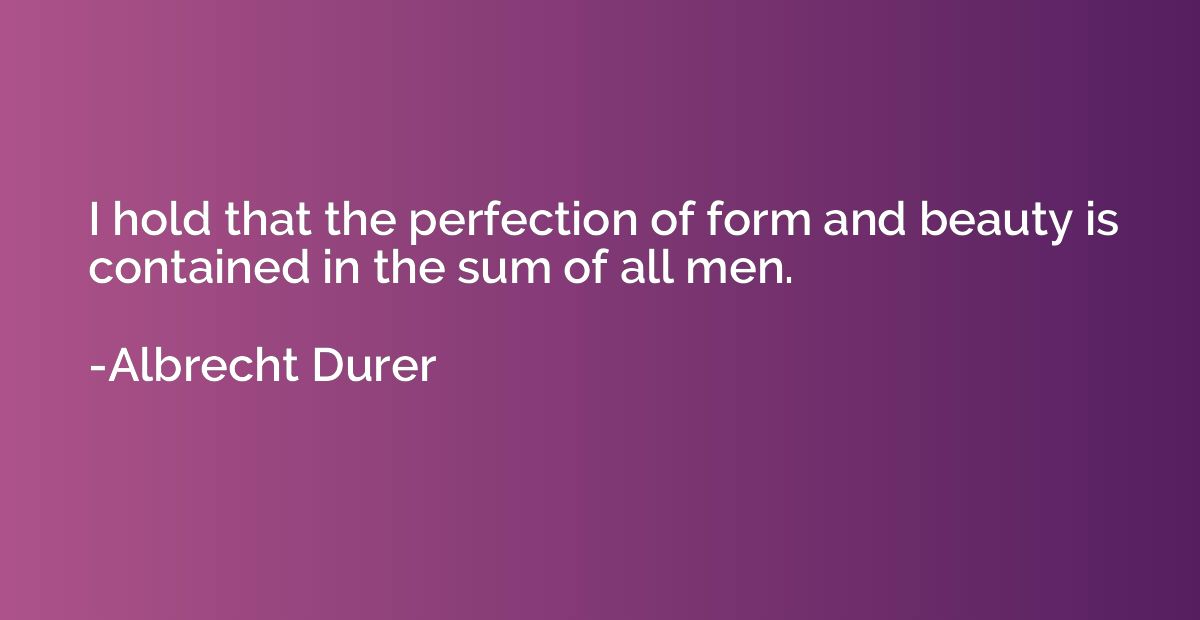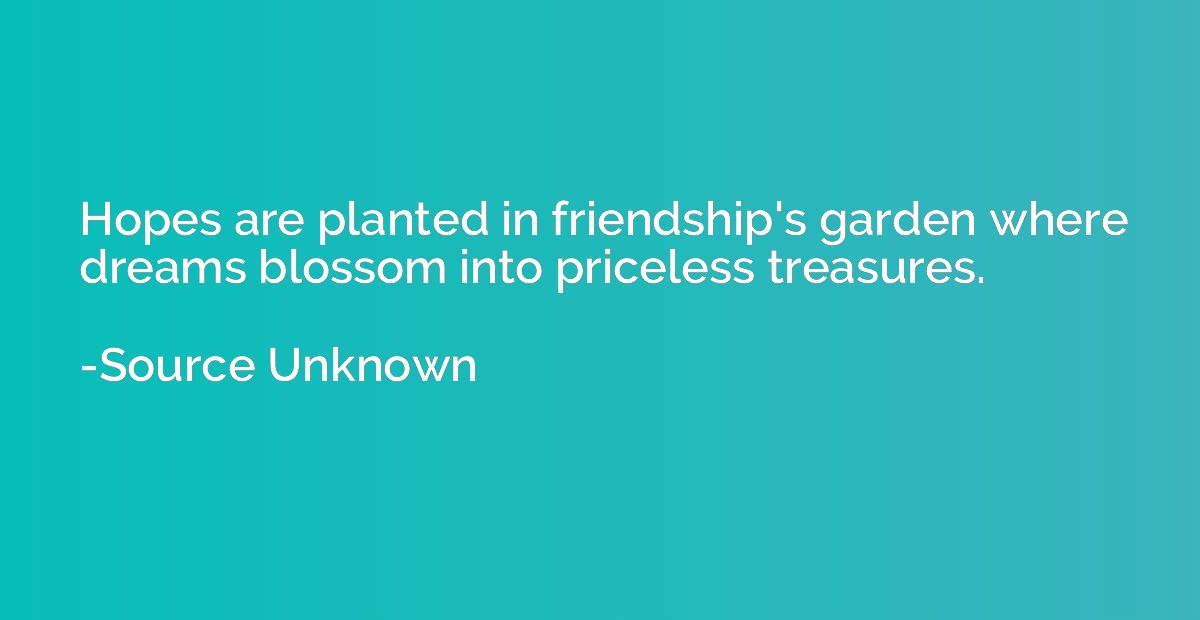Summary
This quote suggests that happiness is a choice and a state of mind. If someone desires to be happy, they simply need to decide to be happy. It emphasizes the fact that happiness depends on how individuals perceive and respond to their circumstances rather than external factors. It implies that individuals have the power to control their emotions and intentionally cultivate happiness in their lives by adopting a positive mindset. This quote encourages individuals to take responsibility for their own happiness and make a conscious decision to prioritize joy in their lives.
Topics
Happiness
By Leo Tolstoy
